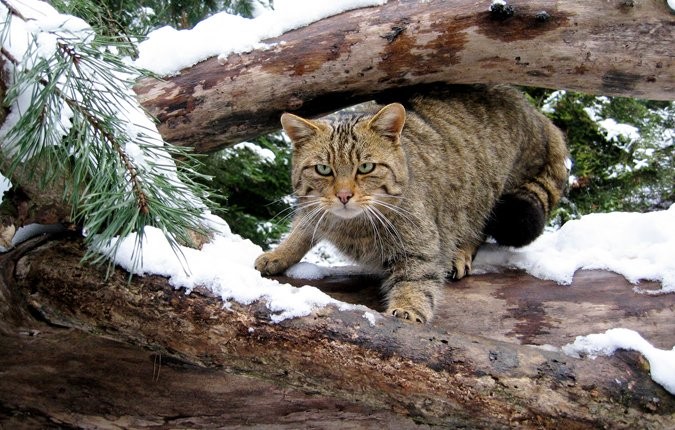Tieranlage Wildkatze
European wildcat
Felis silvestris
Did you know ... that wildcats love the scent of valerian and are drawn to it? The alkaloids contained in valerian have a similar effect to pheromones on both sexes.
Family
Felidae
Distribution
In Switzerland, the European wildcat lives predominantly in the Jura. Originally also found on the Swiss plateau, it has been displaced by the dense population and never spread as far as the Alps due to their deep snow.
Lifestyle
European wildcats are solitary animals who defend their territory. Females live with their kittens until late autumn. Males have more extensive territories and walk long distances during the mating season, while females are philopatric. Wildcats are particularly active at dusk and are very shy.
Reproduction
They mate in February and March, giving birth to three to four kittens after a gestation period of nine weeks.
Diet
Wildcats are obligate carnivores, eating small mammals (mice), birds, reptiles, amphibians and fish.
Senses
Wildcats have excellent vision, particularly at dusk, and also possess well-developed hearing.
The wildcat in Langenberg
Since 1982. Their highly structured new enclosure, which was built in 2006, is well adapted to wildcats’ needs. The animals are fed by an automatically controlled system which releases their «prey» at different times and in different places, with the aim of stimulating them to lie in wait for their potential prey as they would in the wild.






